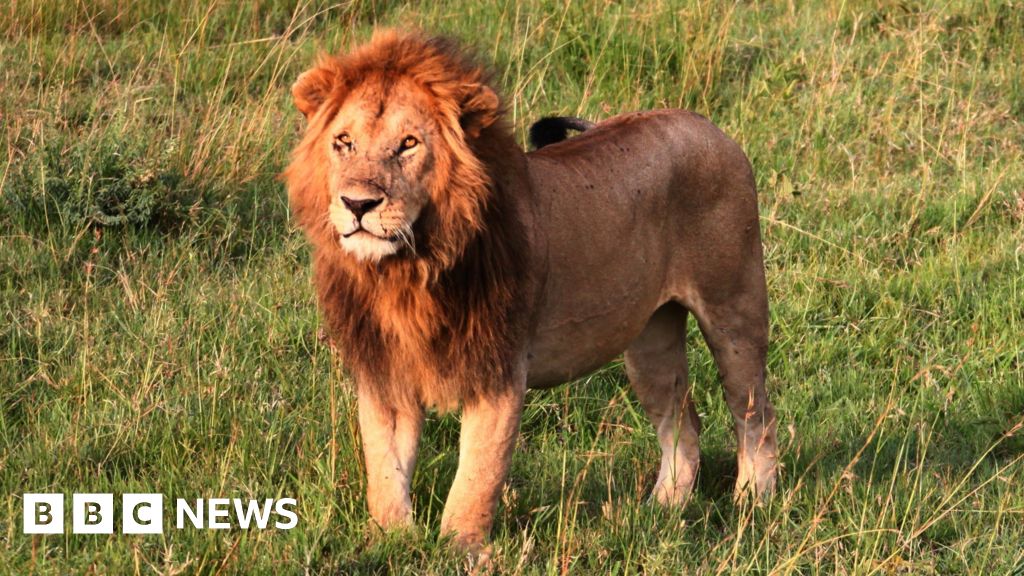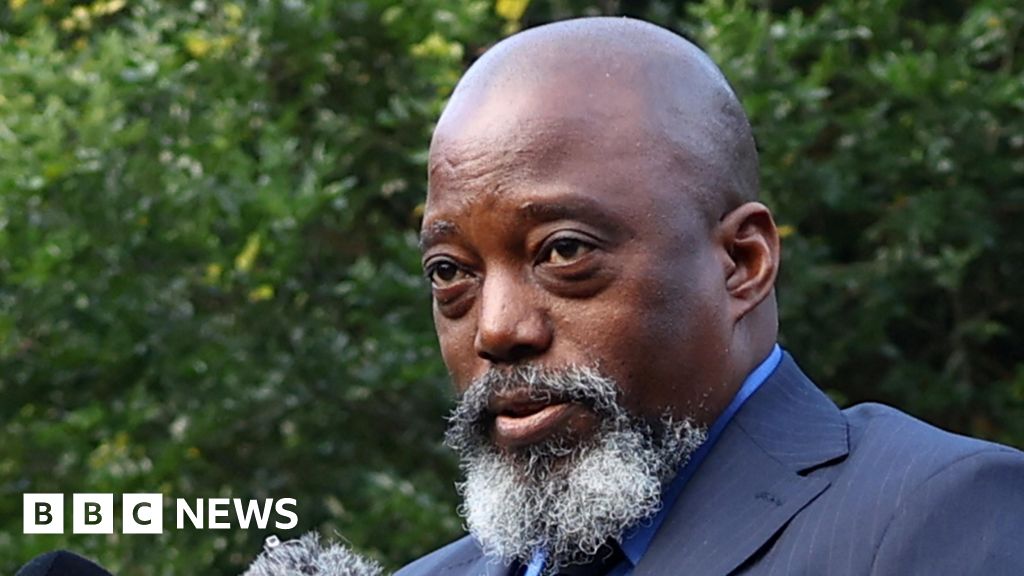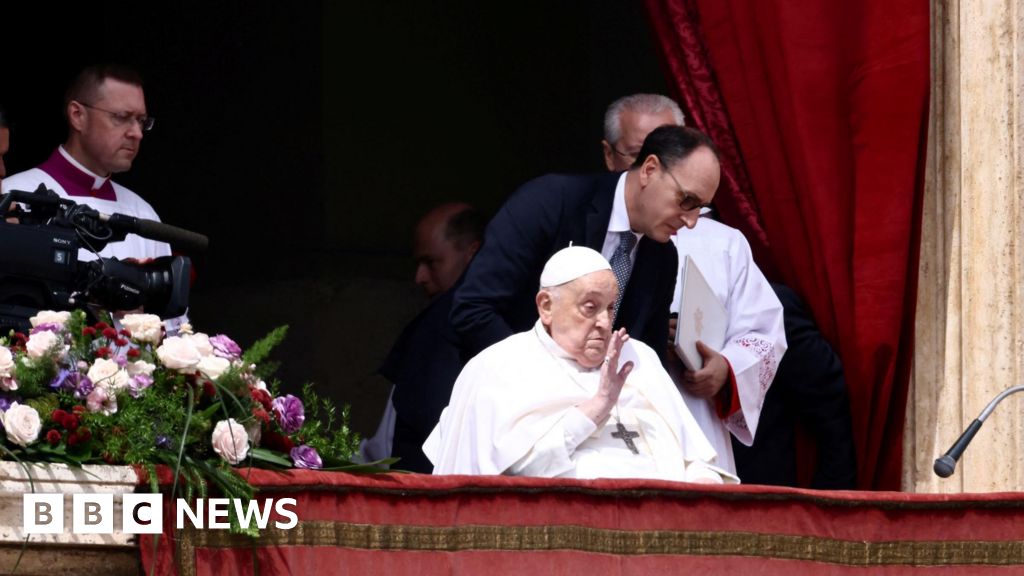ARTICLE AD BOX
By Yogita Limaye
BBC News, Kabul
image sourceEPA
image captionTaliban fighters in Kabul. Reports say the group is targeting perceived enemies despite promising an amnesty.Since they took control of Afghanistan just over two weeks ago, the Taliban have sought to portray a more moderate image than when they last seized power in 1996.
They have repeatedly said they will grant amnesty to all, including those who worked for western militaries or the Afghan government or police. In a dramatic press conference after the group swept into Kabul, chief spokesman Zabihullah Mujahid made a declaration of forgiveness.
But there is growing evidence that the reality on ground is different to the rhetoric coming from Taliban leaders and spokesmen. It was not lost on some watching the press conference in Kabul that Mr Mujahid made his declaration from the seat of the former government spokesman Dawa Khan Menapal, who had been killed by the group just weeks earlier, as "punishment for his deeds".
Now sources inside Afghanistan, as well as some who recently fled, have told the BBC that Taliban fighters are searching for, and allegedly killing, people they pledged they would leave in peace.
Several sources confirmed that Taliban fighters last week executed two senior police officials - Haji Mullah Achakzai, the security director of Badghis province, and Ghulam Sakhi Akbari, security director of Farah province. Video footage showed Mr Achakzai was kneeling, blindfolded, with his hands tied behind his back before he was shot.
Those who managed to flee say they fear for their colleagues back home. Zala Zazai, a former Afghan policewoman, one of thousands trained since the Taliban was deposed in 2001, said she was still in touch with other former policewomen.
"The Taliban call them from their office phones and ask them to come to work, and ask for their home address," she said.
Ms Zazai said that even in Tajikistan she was not totally out of the reach of the Taliban. Her mother, who is with her, received messages urging both women to return to Afghanistan and "live in the Islamic way", she said.
A former Afghan soldier who fled from Badakhshan province along with his three brothers, all of whom were in the army, said Taliban fighters were harassing his family, "asking them for money saying your son was in the special forces".
And a former Afghan special forces soldier still inside the country told the BBC that he and his family were in hiding after former colleagues were killed.
"Since the Taliban have come to power they haven't stopped killing," he said. "A few days ago, they killed twelve members of the special forces in Kandahar and three soldiers in Jalalabad as well. They were my close friends. I was in touch with them. The Taliban took them out of their homes and shot them."
The BBC was not able to independently confirm the killings, and the Taliban have repeatedly denied committing any revenge killings. But the group was widely thought to be behind a spate of assassinations after signing a peace deal with the US in 2020, and there are mounting reports they have been searching for targets since taking power two weeks ago.
image sourceReuters
image captionTaliban forces patrol near the Hamid Karzai International Airport, a day after US troops withdrew.Amnesty International reported earlier this month that Taliban fighters massacred nine ethnic Hazara men after taking control of Afghanistan's Ghazni province in July. And Human Rights Watch reported that Taliban fighters were conducting searches in Kandahar province as they swept the country and detaining anyone suspected of working with the government, reportedly killing some detainees.
A high-ranking Afghan police official, who did not want to be named for fear of reprisals, told the BBC from hiding that he'd heard the Taliban were searching for him.
"They caught my assistant and interrogated him for five hours," the official said. "They treated him very badly. They asked him, 'Where is your chief?' If they are forgiving everyone then why are they hunting for me?"
He said he was changing location every day with his wife and children. "I have no money to cross the border," he said, breaking down as he spoke. "The problem is the Taliban have no justice system. They have no courts, no jail. They are just killing."
It is not just people who worked in the security forces who say they are being targeted. Members of the civil administration, and those who worked in jobs disapproved by the Taliban told similar stories.
"The Taliban took my car, beat up my guards and took their weapons," said Zarifa Ghafari, who was Afghanistan's first female mayor, governing Maidan Shar, the capital of Wardak province.
"They were searching for me. They called all the people who used to be in contact with me asking where I was. They even went to my husband's parents' house to look for me," she said.
Ms Ghafari was speaking via a video call from Germany, where she fled after the Taliban took power.
"They made me do something I never wanted to do," she said. "They made me leave a country that I love."
image sourceFamily
image captionZarifa Ghafari, Afghanistan's first female mayor, places a flag on her father's grave in AfghanistanNilofar Ayoubi was also among those who managed to flee in time. A few weeks ago, she was busy working with her staff at her high-end fashion and accessories store in Kabul. When Taliban fighters walked into the city, they began stripping everything.
"We removed the mannequins from the windows, covered the windows, locked the door and ran," Ms Ayoubi said. "I paid my staff a month's salary, then I went off home, packed two bags with my documents and a few things for my children and went into hiding,' she said.
Ms Ayoubi applied for asylum to Poland and, after pushing through the scrum at Kabul airport, managed to escape with her husband and children.
"As soon as I landed I saw multiple calls from my family," she said. "They were so scared. They said the Taliban had come to our home, pointed guns at them and warned them that if you don't call your daughter and son-in-law back, we will kill you."
As the Taliban settles into power, part of the concern is that even if all their promises of clemency are true, the group's factions are not all necessarily in agreement, and not necessarily under control. Many in Afghanistan doubt that the Taliban leadership plans to honour its own amnesty. They doubt the group is a new moderate version of its old self. If violent acts of intimidation and reprisal go unaccounted for, and unpunished by the leadership, it will become clear that the Taliban of the present is no less ruthless than the Taliban of the past.
Additional reporting by Aakriti Thapar and Imogen Anderson

 3 years ago
134
3 years ago
134








 English (US) ·
English (US) ·